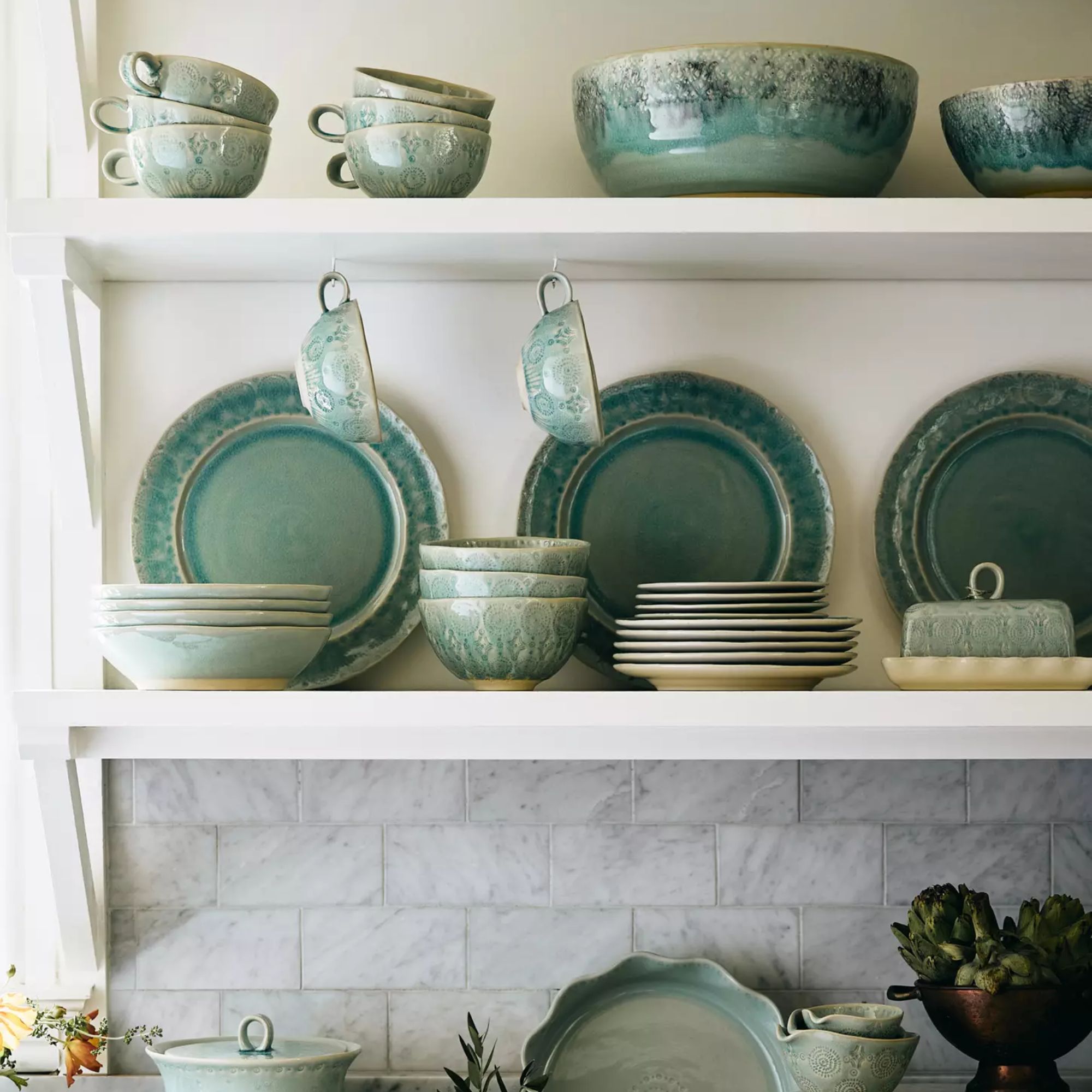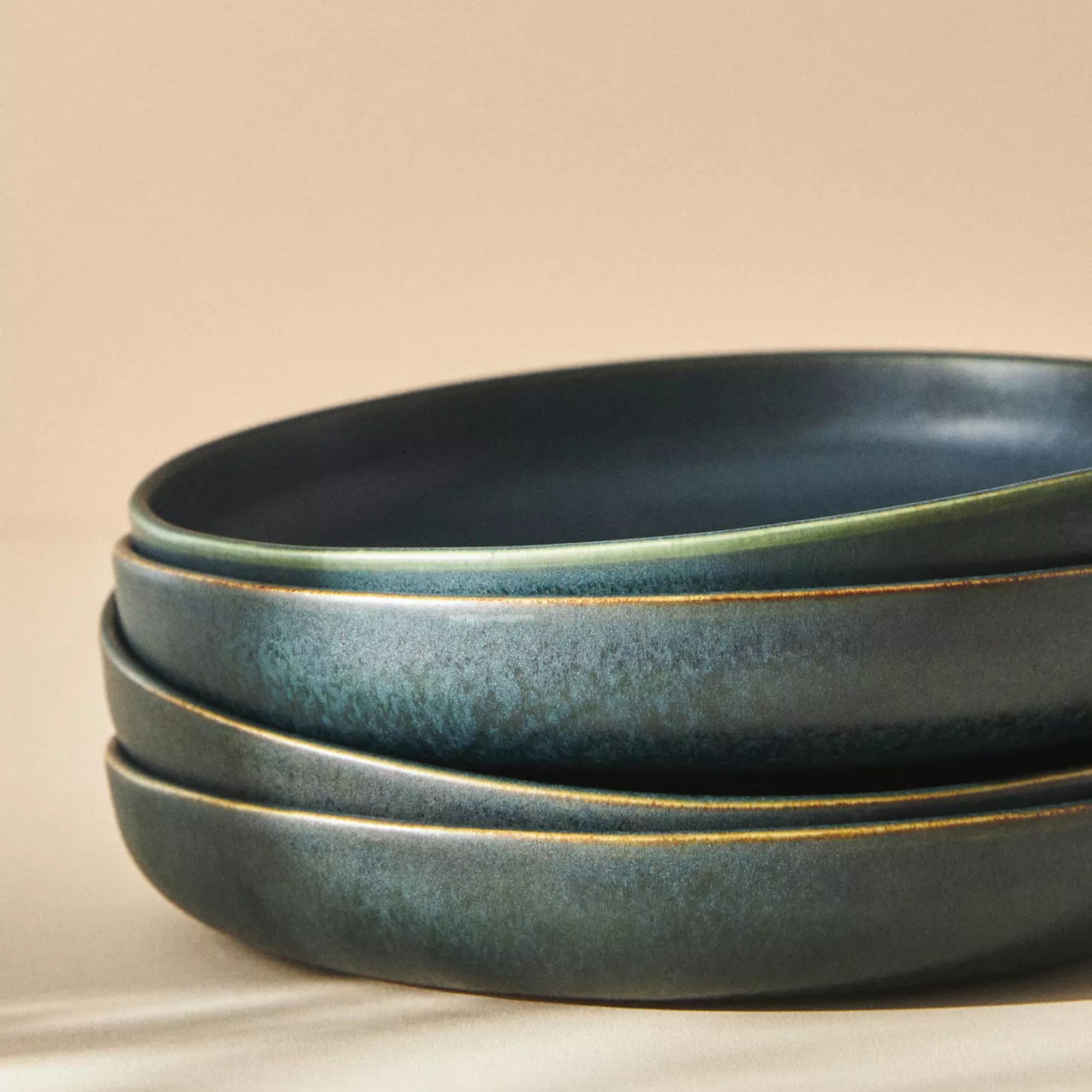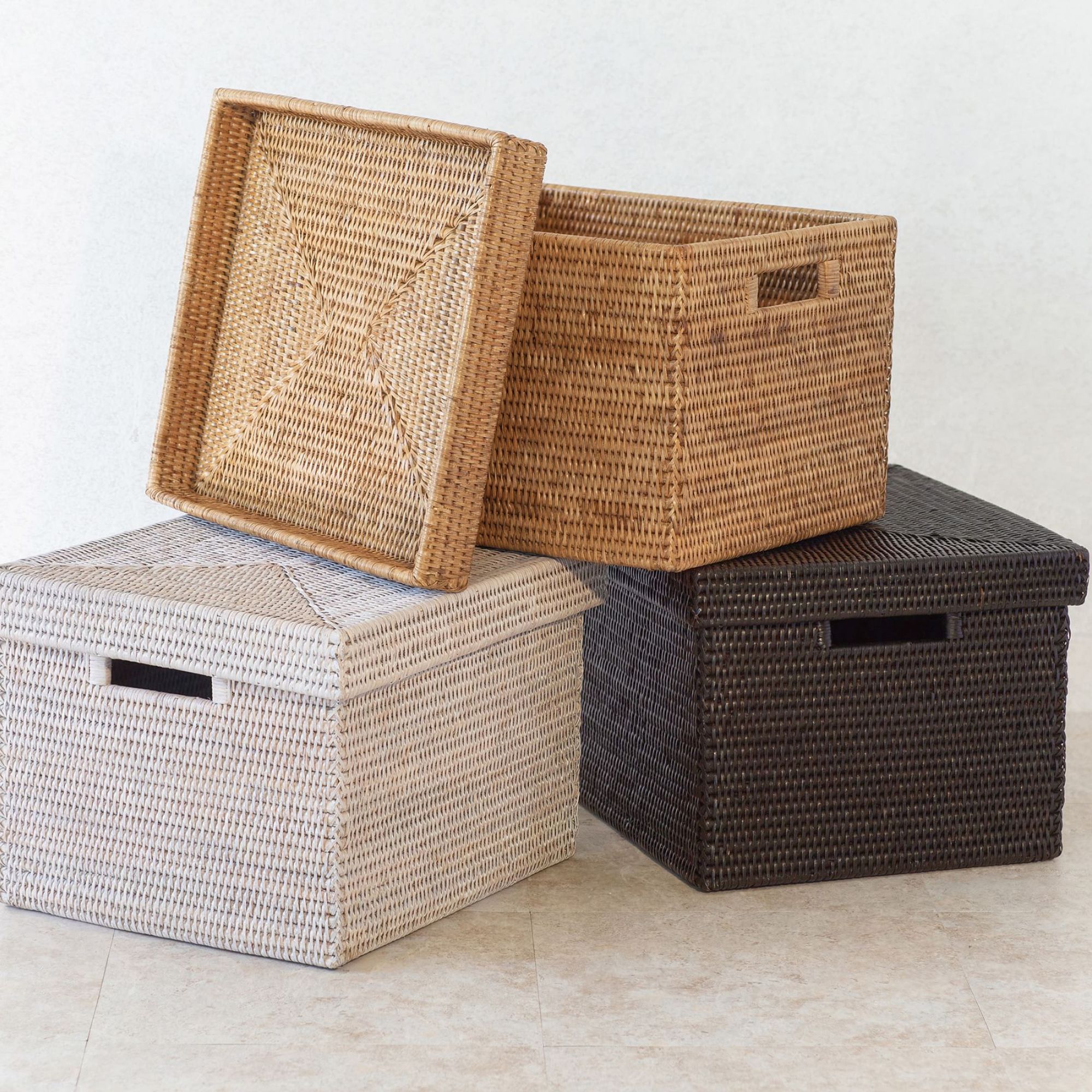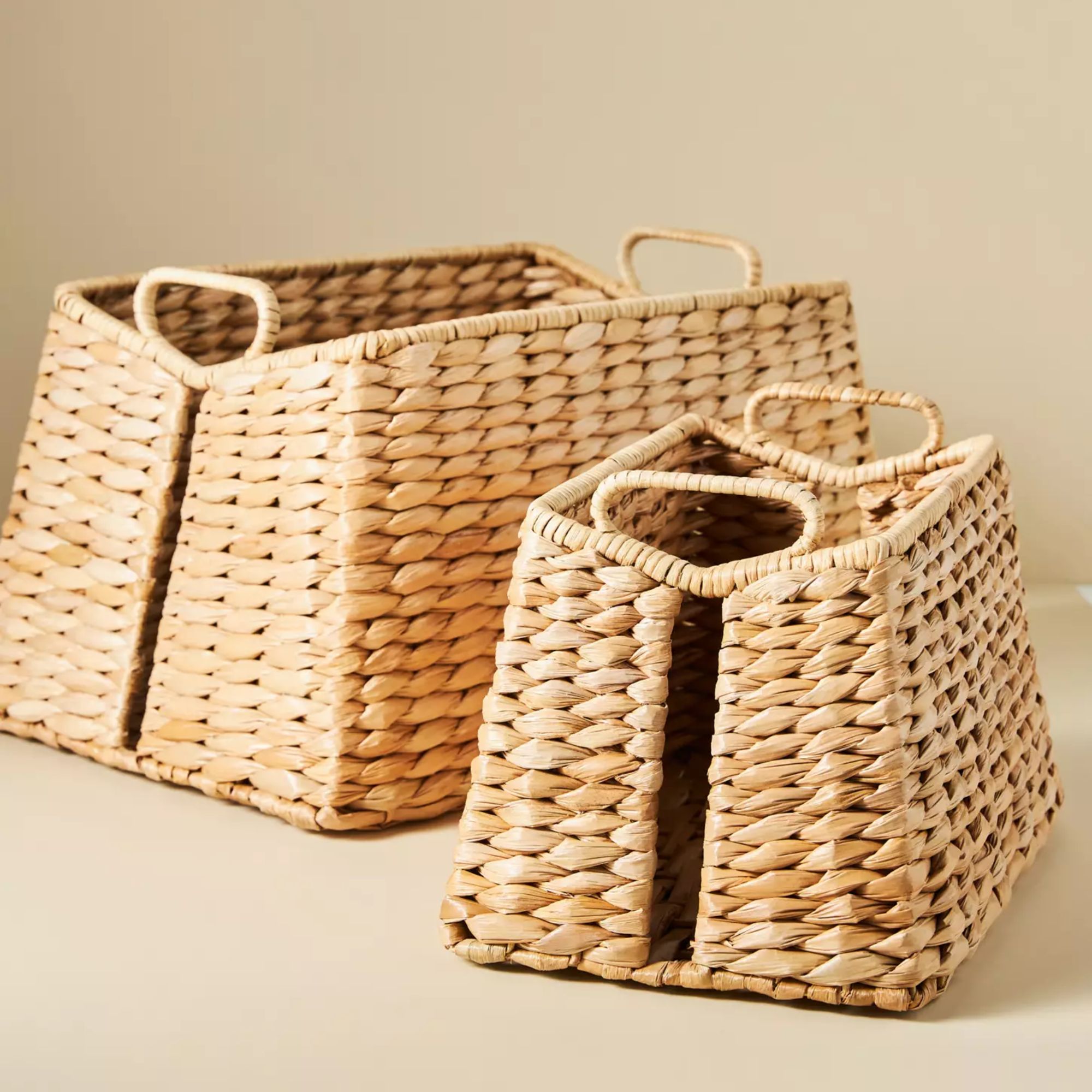Items you should never store in your kitchen, according to interior designers
The 11 items that don't belong in your kitchen and why
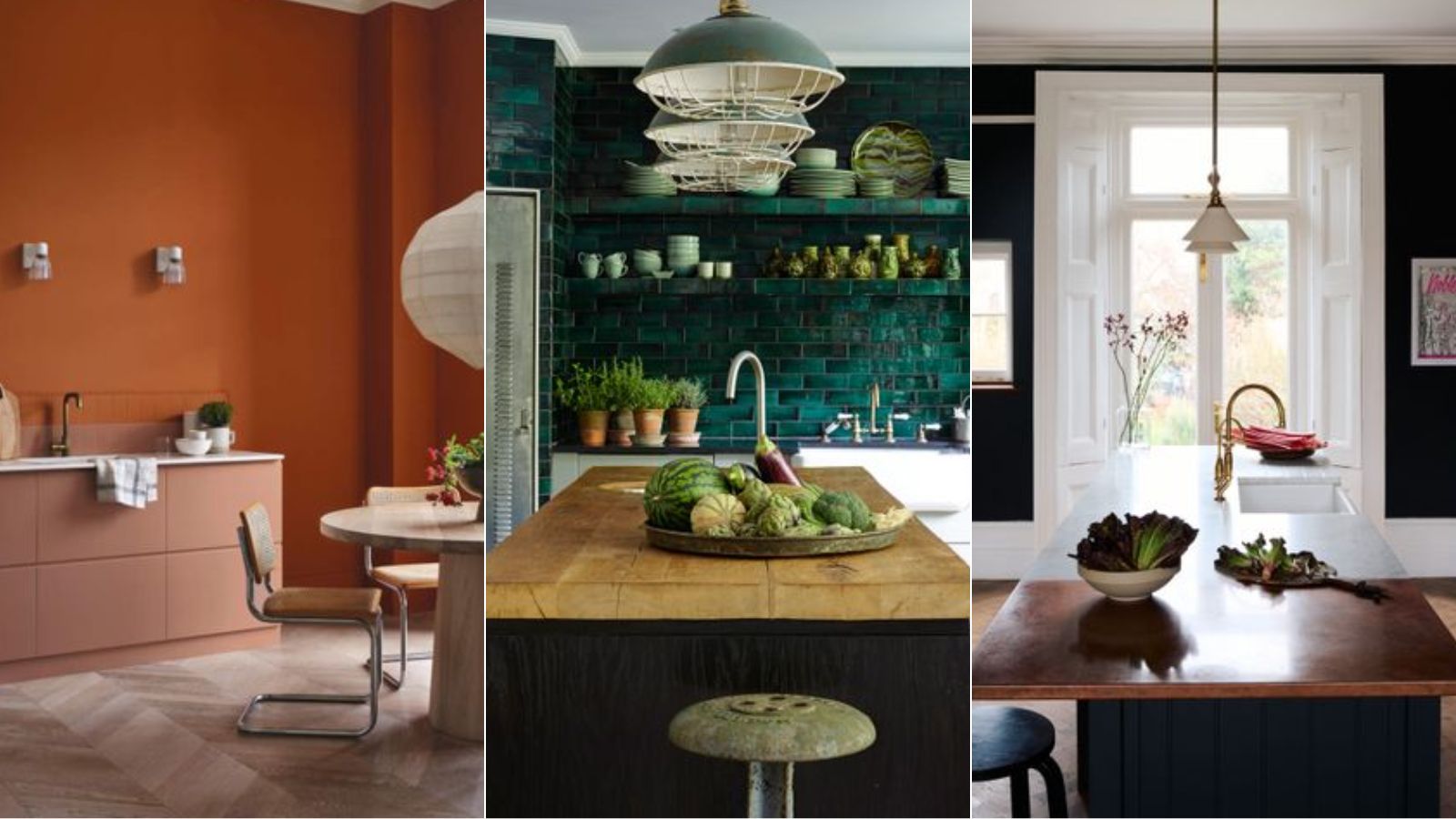

As one of the most used rooms in your home, your kitchen's design should be well thought out in order to keep it functional and aesthetically pleasing – meaning keeping certain items out of your kitchen.
It's important to maintain a clutter-free and safe kitchen environment, which involves being mindful of what we store in this space. More than other rooms, you should put some strict rules in place about what items you should never store in a kitchen, whether for the sake of reducing visual clutter, protecting the items or keeping your kitchen hygienic.
Our experts have recommended the top 11 items that are not appropriate to store in a kitchen to help you avoid kitchen storage mistakes.
Items to never store in a kitchen
While some kitchen storage trends may come and go, there are some non-negotiables when it comes to which items should never be stored in your kitchen.
1. Items that are chipped or broken
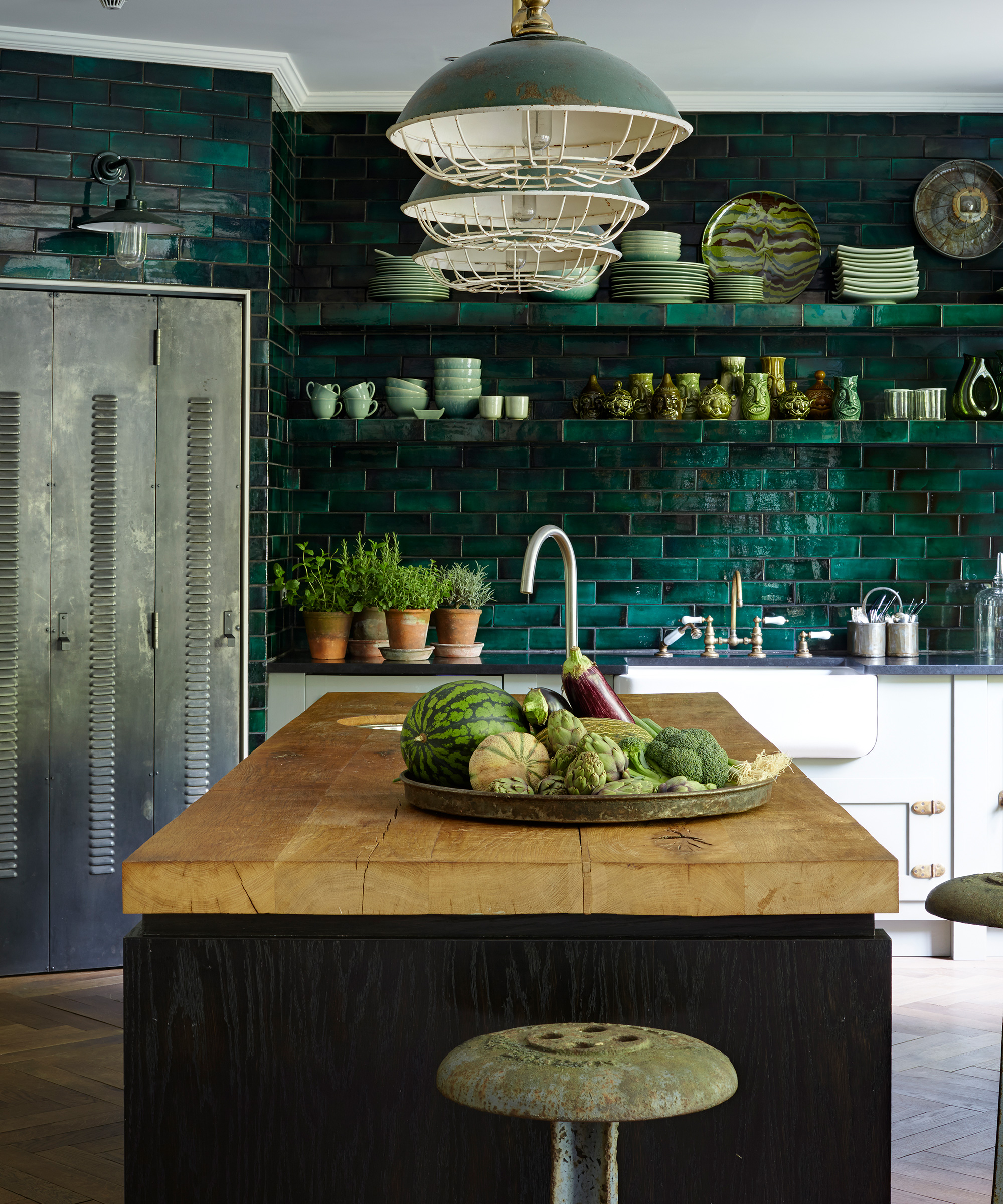
As a rule, you should throw away any items that are chipped or broken, and never store these items on your kitchen shelves, since they can make your crockery and glassware display look instantly scruffy.
'Unless you are going to take up the Japanese art of Kintsugi, damaged crockery should be removed and disposed of,' says Suzanne Butler, Feng Shui & manifestation expert from Harmonising Energies Feng Shui. 'You are eating off plates or bowls that are not whole. This energy is detrimental to the food you are eating and to your financial abundance, as well as trapping potentially harmful bacteria in cracks.
'Instead, if you find you are slowly running out of matching tableware, level up and buy an entire new set which suits the lifestyle you desire for yourself.'
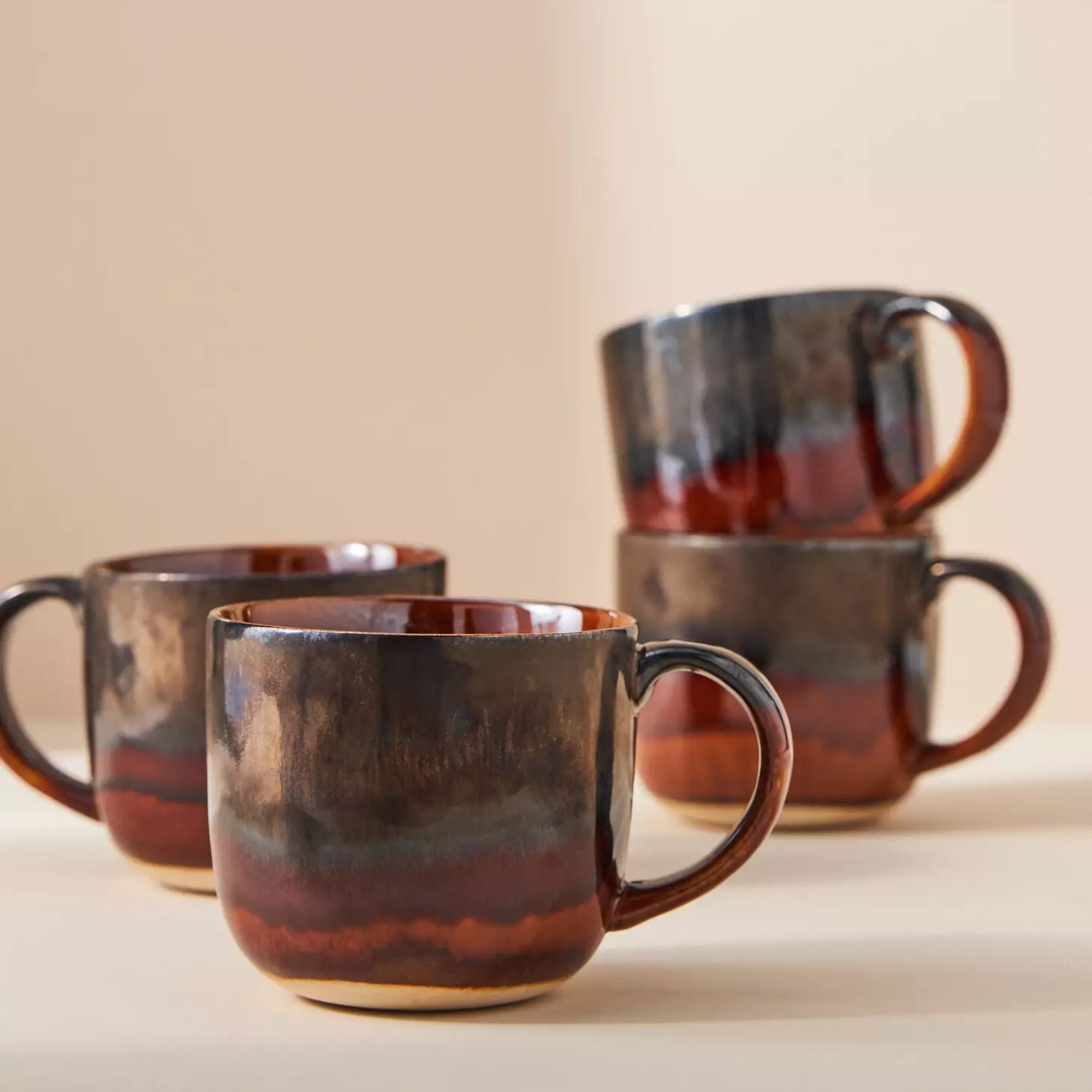
$64.00
This set of four glasses can add some visual interest and texture to your shelf display,
2. Delicate textiles and textures
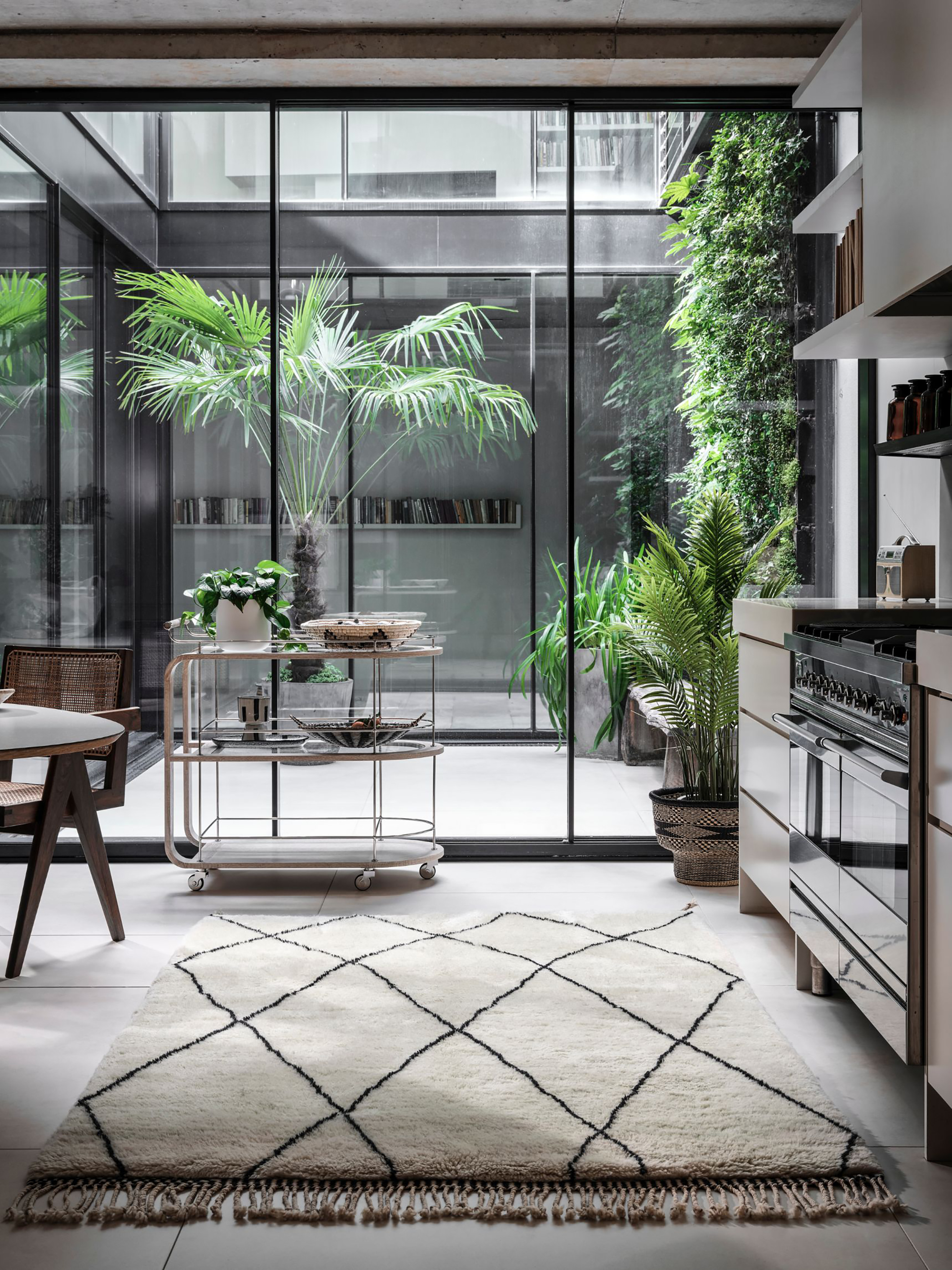
Kitchens are possibly the messiest room in your home, with not only food and drink likely to be splattered and spilt in your kitchen, but also fluctuations in smoke and humidity, which mean that a kitchen isn't a suitable environment to store delicate and valuable materials, and if you are, they're items stored in the wrong place.
Nicholas Kaiko from Kaiko Design Interiors advises, 'While it might be tempting to place that Persian rug or delicate hand-made textile in the kitchen to elevate its aesthetic, these are not built for such an environment. Spills, crumbs, and frequent foot traffic can quickly damage and stain them. The effort and cost of cleaning kitchen rugs can be substantial. It's best to display these precious textiles in areas where they're less likely to encounter kitchen-related mishaps.
'Original artworks (especially those created using organic materials) can also suffer in the kitchen environment. Moisture, heat, and airborne particles from cooking can degrade the materials over time. Additionally, artworks are often a significant investment so it is best to protect them from potential harm.'
3. Books
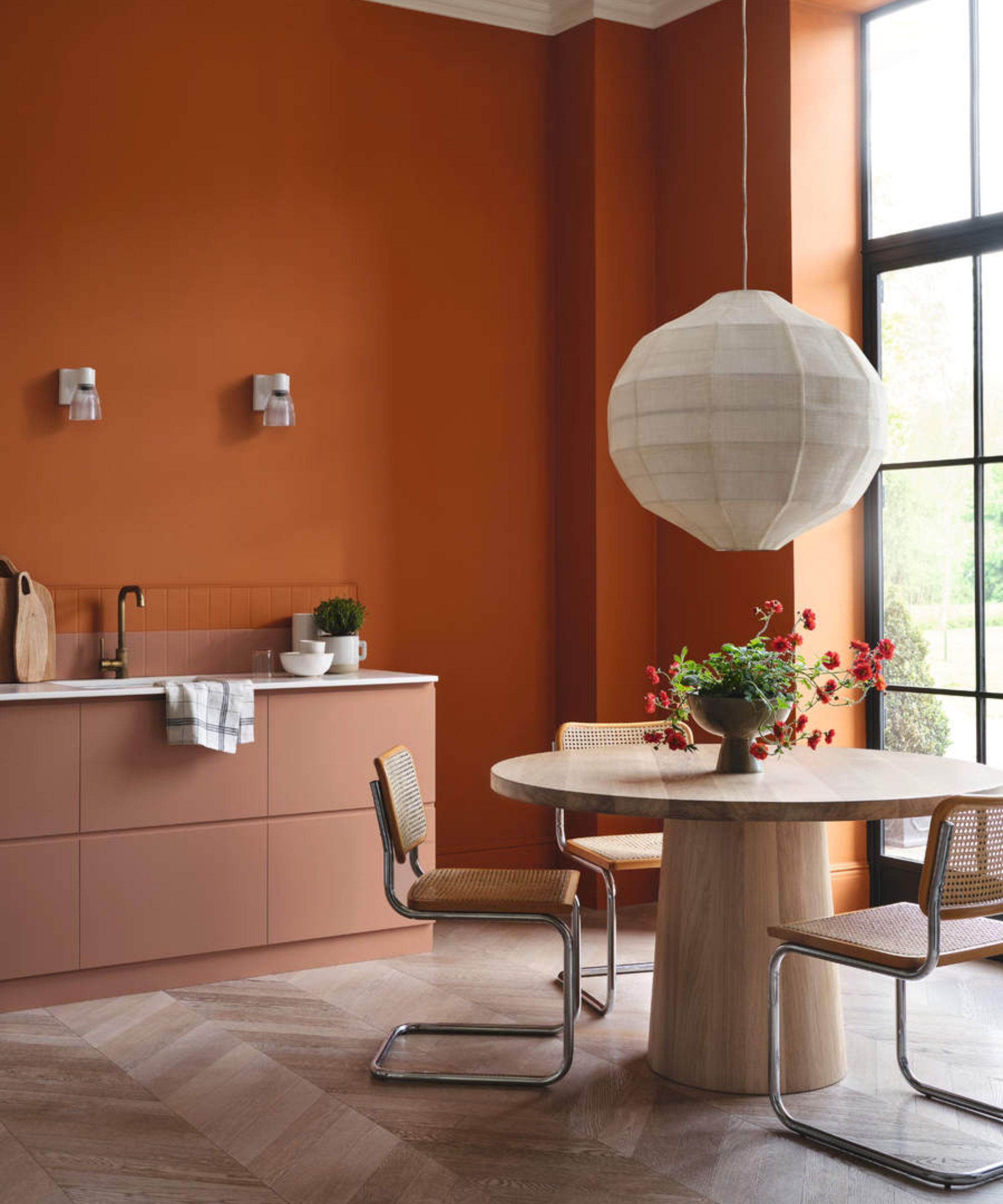
Did you know you should never store recipe books in the kitchen? 'While cookbooks are commonly found in kitchens, it's best not to store a collection there,' warns Mohammad Ahmed, founder of The Home Guidance.
Nicholas Kaiko says, 'Kitchens are prone to sudden temperature changes, humidity, and accidental spills. Even with the best ventilation, cooking oils can become airborne and settle on surfaces over time. This can be detrimental to the pages of a book, especially if it's valuable or rare. It's best to keep such items in a more stable environment, free from the risks associated with kitchen activities.'
Mohammad Ahmed suggests, 'If you do want cookbooks in the kitchen, consider a sealed or dedicated space away from direct heat or water sources.' We recommend this handwoven rattan square storage box with lid from Pottery Barn.

Mohammad Ahmed is an interior designer and home expert. He did his bachelor's degree in interior design at the University of Minnesota in 2013 and since then has worked as an interior designer in various companies, designing functional and beautiful spaces for clients. In addition to his interior and exterior design skills, Mohammad is also home expert with a talent for creating bespoke furniture and other accessories. He has been featured in popular publications such as Forbes, Yahoo, Realtor, Real Homes, Bustle, and Livingetc for his exceptional design tips.
4. Chemicals and contaminants
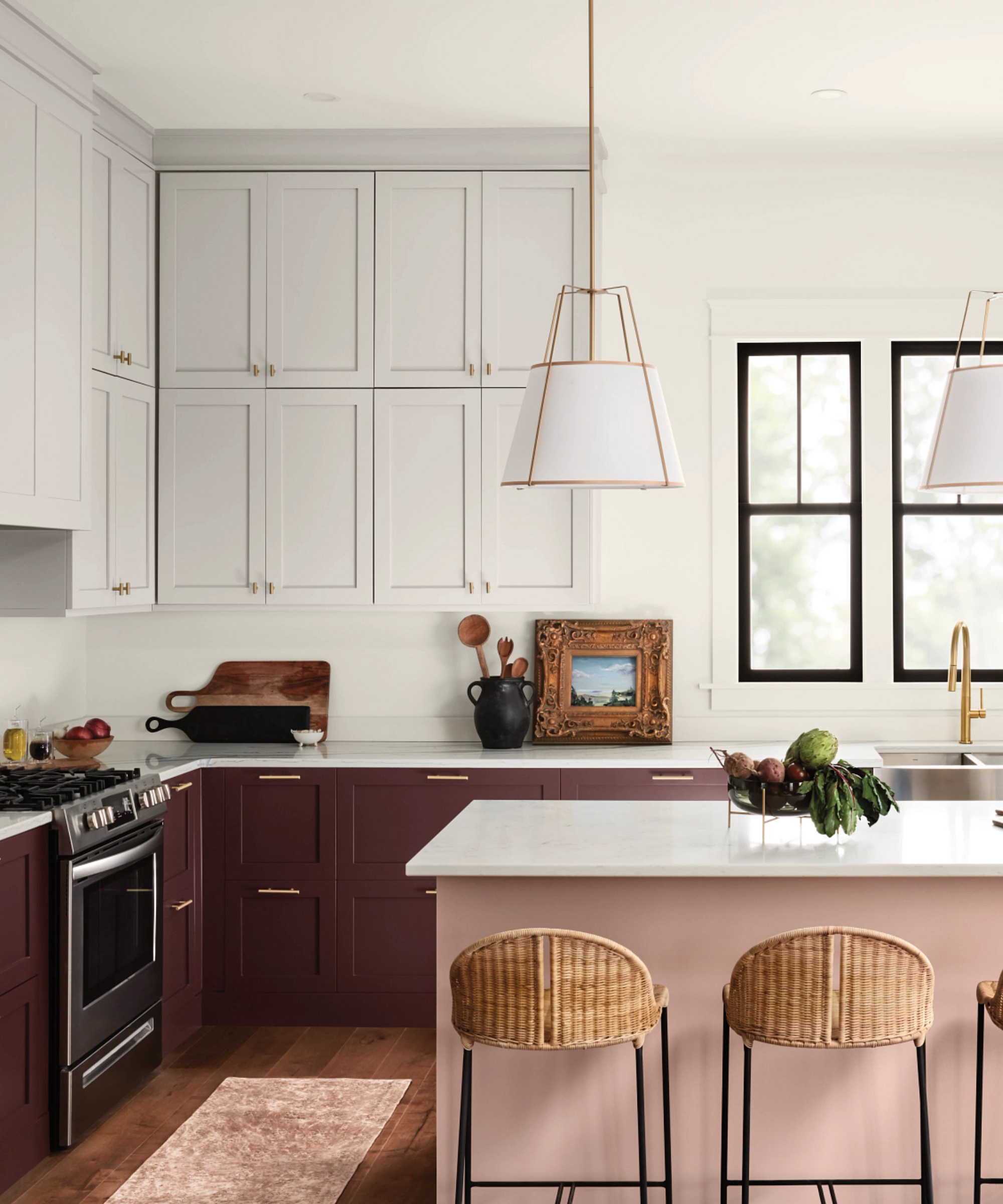
Tom Nolan, the founder of All Star Home, a home improvement company, comments, 'Most people store cleaning items under the kitchen sink – but this can be a big mistake. When you are looking for what you should store in your kitchen, make sure to keep harsh chemicals out of the kitchen.'
'The main reason to avoid keeping these items out of the kitchen is to make sure you don't make it possible for cross-contamination or accidental ingestion. Kitchens are places where people socialize and eat – so having harsh chemicals around food can create a recipe for disaster.
'This can also be a risk to pets or young kids who are used to eating in the kitchen and might accidentally find themselves in under-sink cabinets,' continues Tom Nolan.
It's also important to keep those non-food or kitchen essential items out of the kitchen which which will pose health dangers if they come into contact with food, such as batteries, tools, pet supplies, and clothes.
Janille Mangat, cleaning specialist at VMAP warns, 'The kitchen is not suitable for storing clothing or shoes as it's not hygienic and can lead to contamination.'
'Similarly, it's wise to avoid storing pet food and supplies in the kitchen to prevent cross-contamination,' advises Hashi Mohamed, President of Ivy Cleans. These items can attract pests, and so are better stored in a sealed container in a separate pet food storage area.
5. Delicate plant species
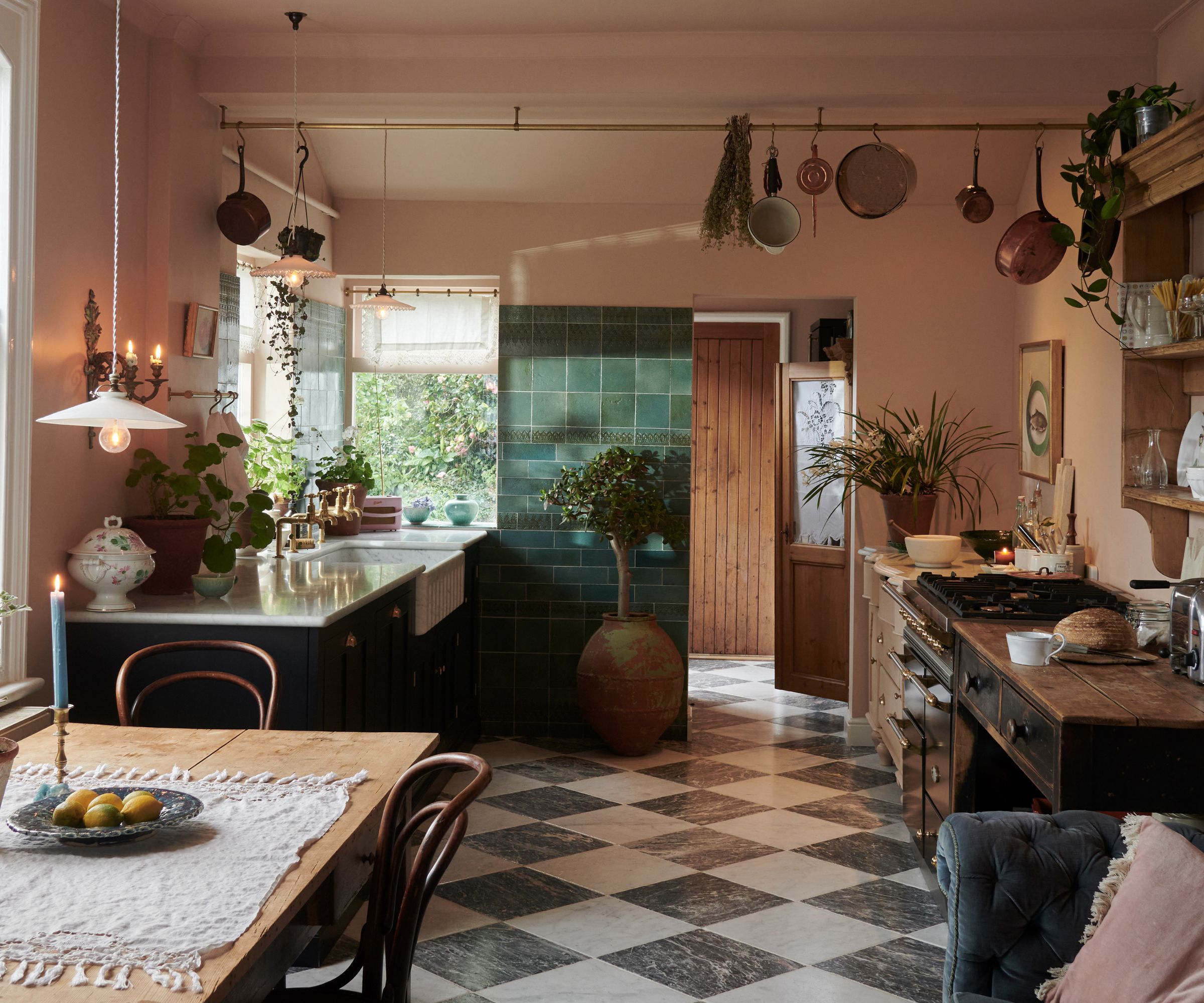
While plants can add a touch of nature and fresh air to any room, certain species are sensitive to changes in environment,' advises interior design expert, Nicholas Kaiko. 'The heat, moisture, and fumes from cooking can be stressful to plants that prefer a stable climate. Opt for hardier plant varieties for the kitchen and keep the delicate ones in more favorable conditions elsewhere in your home.'
The best kitchen plants include spider plants, herbs, and peace lilies.
6. Work items and electronics
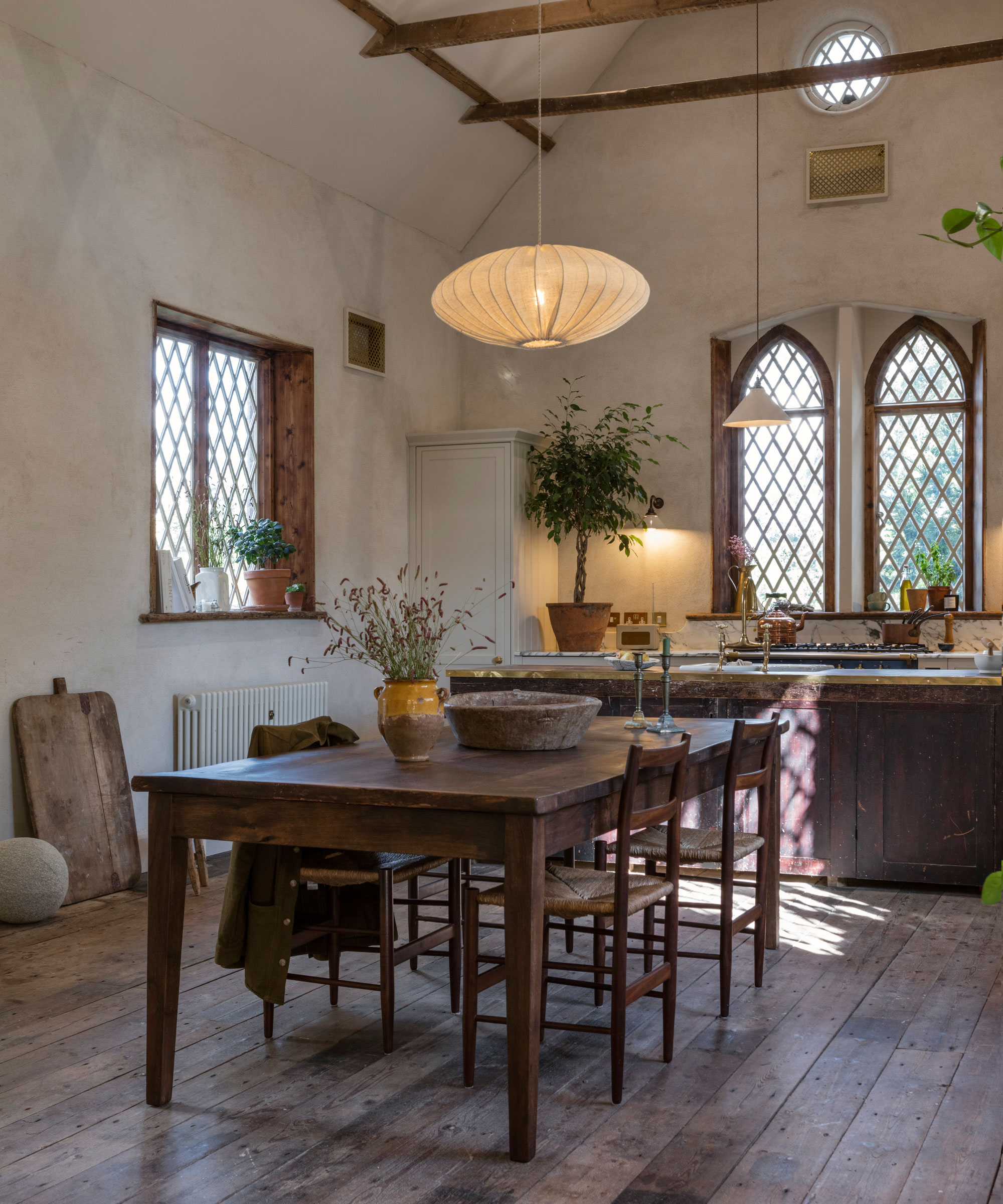
With an increasing number of people working from home, many are using their kitchen as a makeshift office. However, storing important documents and electronics such as laptops, tablets, and cables will not only increase the likelihood of damaging these items but will also make your kitchen feel cluttered and incohesive.
Ditching these work items can make a kitchen more inviting and relaxing.
If you have nowhere else to work, consider using dedicated storage boxes to file your work items at the end of the day and between meals to keep your documents and electronics safe and organized.
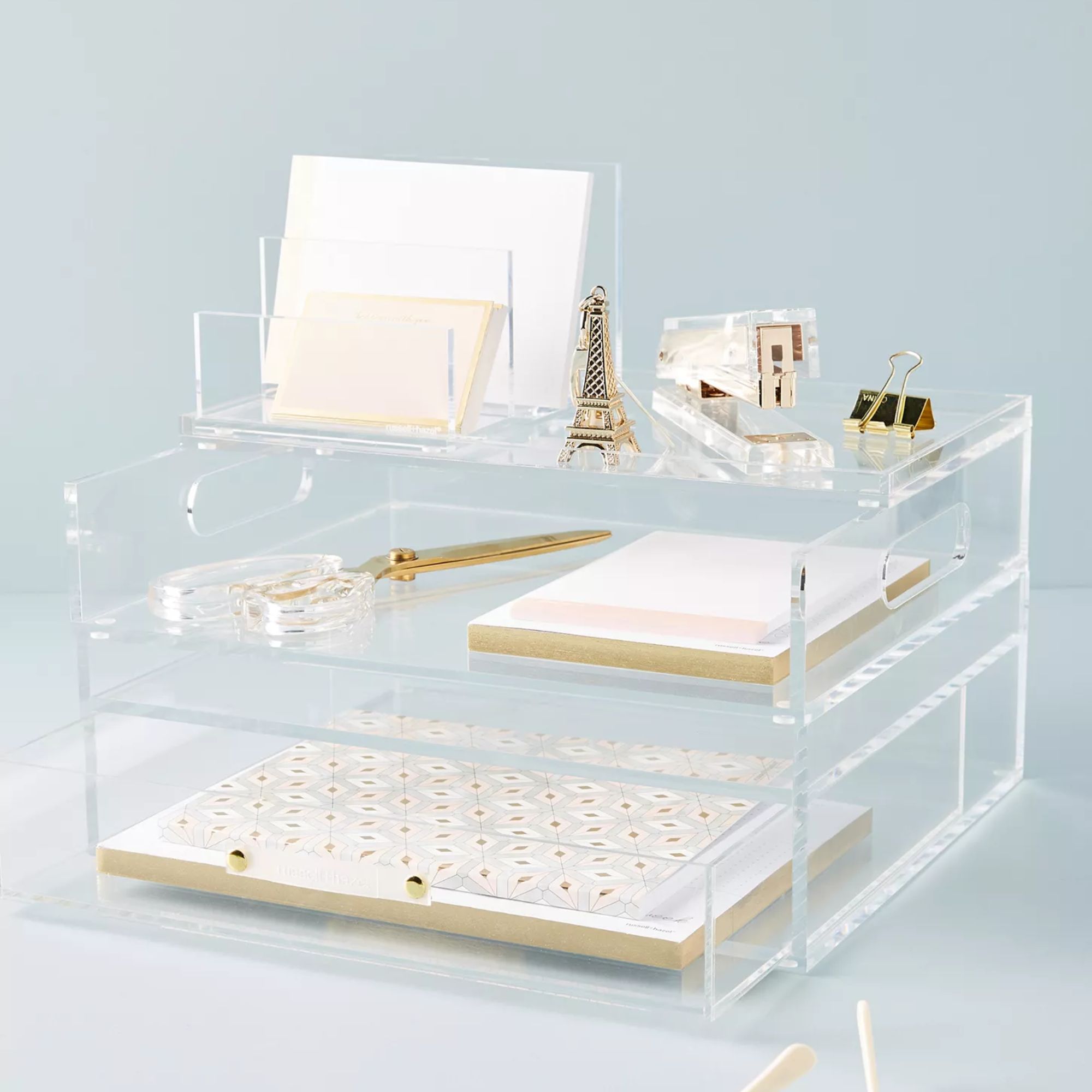
$106.00
Whether for desk supplies, make up, electronics or craft kits, this storage box is the perfect way to organize smaller items to integrate into your home display.
7. Vintage or antique wooden furniture
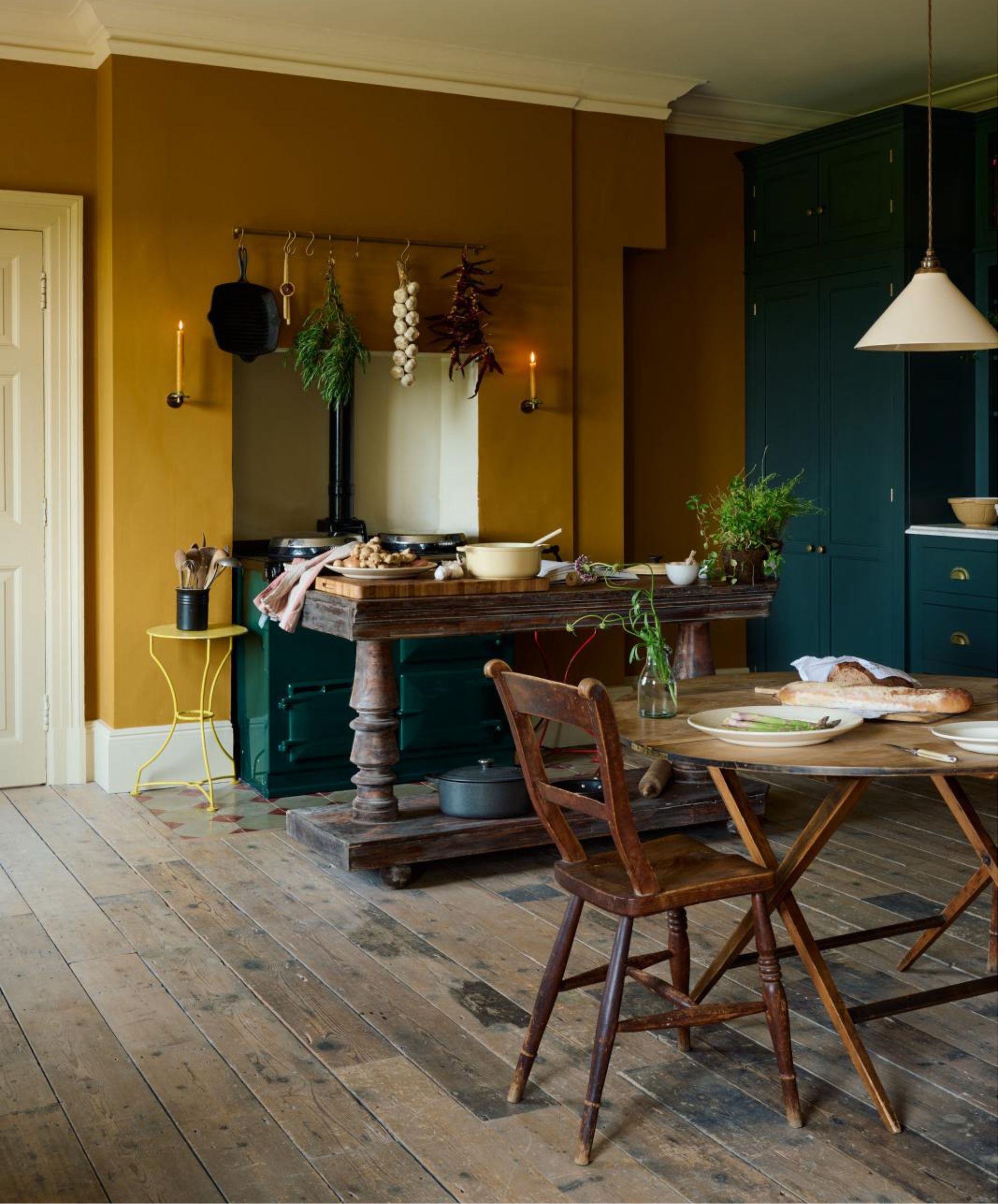
'Kitchens often experience fluctuating humidity levels. Over time, this can cause wooden furniture to warp, crack, or even rot. Vintage or antique pieces, often made from solid wood, are particularly vulnerable. It's best to place these items in parts of the home where the humidity and temperature are more consistent,' recommends Nicholas Kaiko.
8. Flammable materials
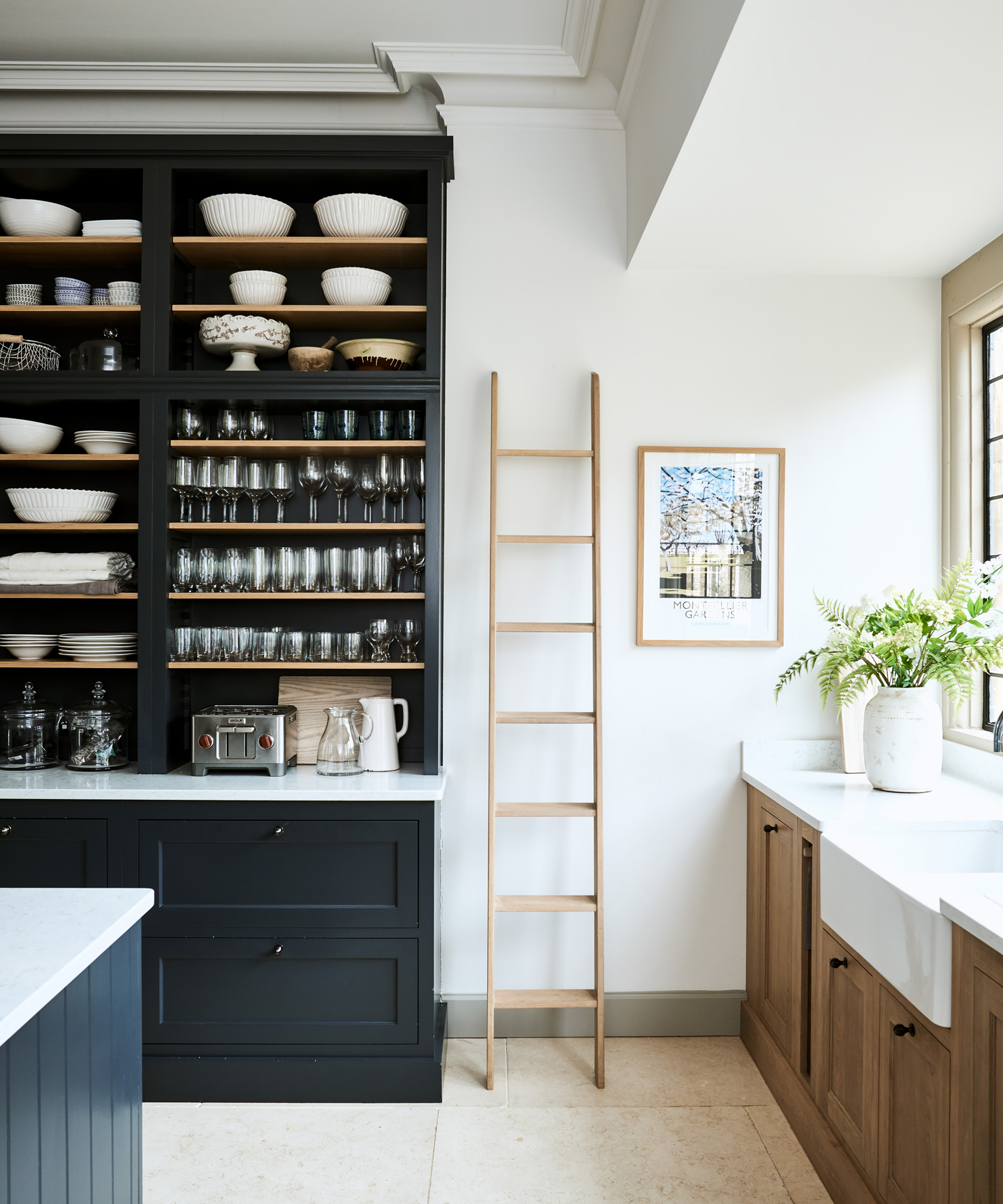
For safety reasons, 'Flammable materials and hazardous chemicals should never be stored in the kitchen,' warns Rich Mullins, interior design expert and owner of H2O Plumbing. 'This includes items like paint thinner, gasoline, or cleaning agents. The kitchen environment is full of heat sources, and storing flammable materials here poses a significant safety risk. Instead, keep these items in a secure, well-ventilated area away from the kitchen, such as a garage or utility room.'
9. Expired food
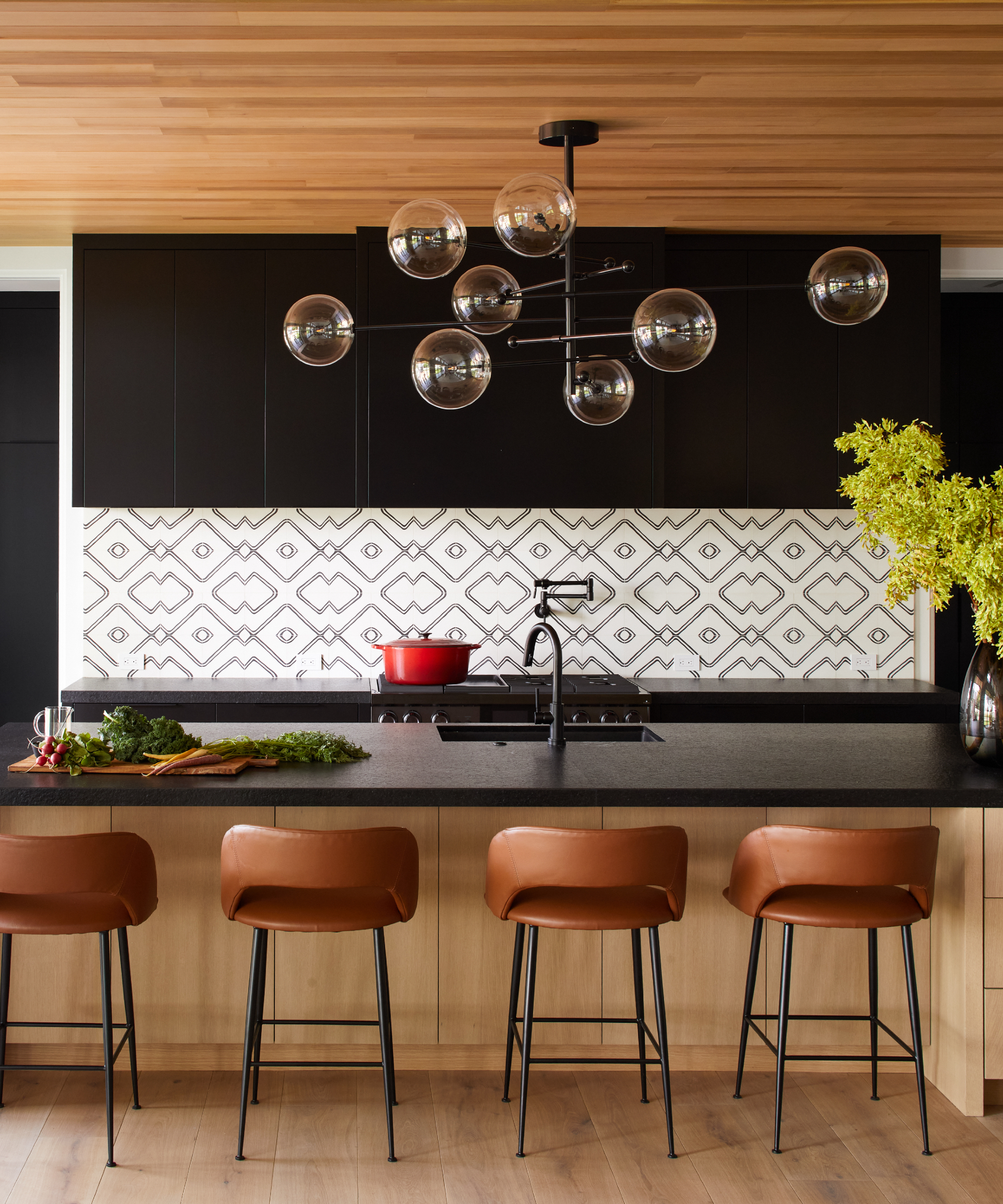
Consistently removing expired food is key to reducing clutter and making sure you can more easily distinguish which foods you need to add to your shopping list, since there's nothing worse than going to make a meal and realizing your key ingredient is out of date and having to head straight back to the store.
'Regularly check your pantry, fridge, and freezer for expired or spoiled food. These items not only take up valuable space but can also lead to health issues if consumed,' says Emma Parker cooking expert and co-founder of The Trout Fish. Doing this will increase your kitchen's efficiency.
It's also important to regularly check and discard expired spices in your kitchen. Spices that have expired will lose their flavor and potency and have the potential to ruin your dishes.
When organizing spices in your kitchen, remember that it's best to store them in a cool, dry place away from direct sunlight to maintain their quality.
10. Medicine
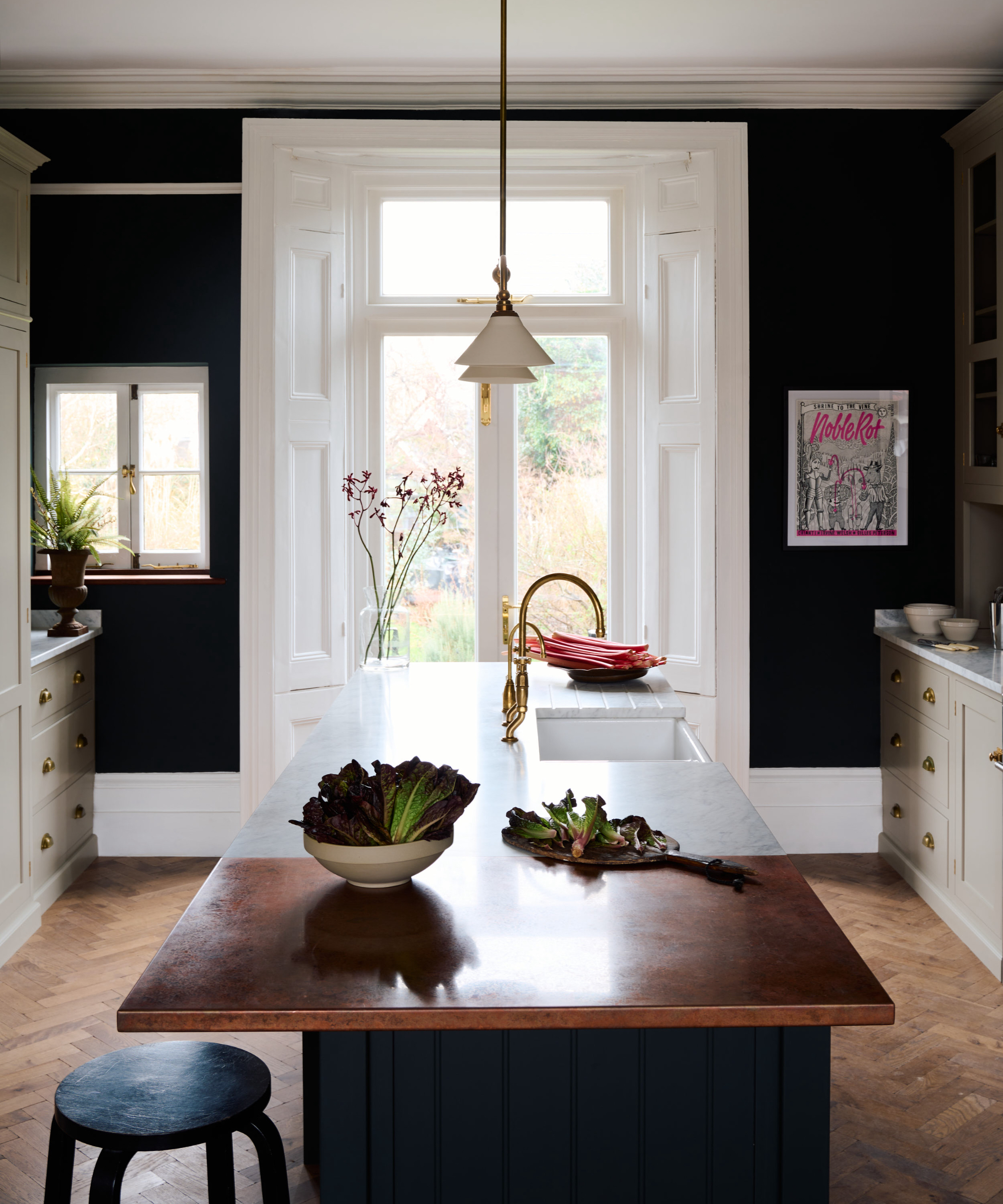
Emma Parker advises, 'While it might be convenient to store medications in the kitchen, the fluctuating temperatures and humidity levels can affect their potency,' which can have costly repercussions on your health. 'It's best to keep them in a cool, dry place away from direct sunlight.'
11. Dirty sponges and dishcloths
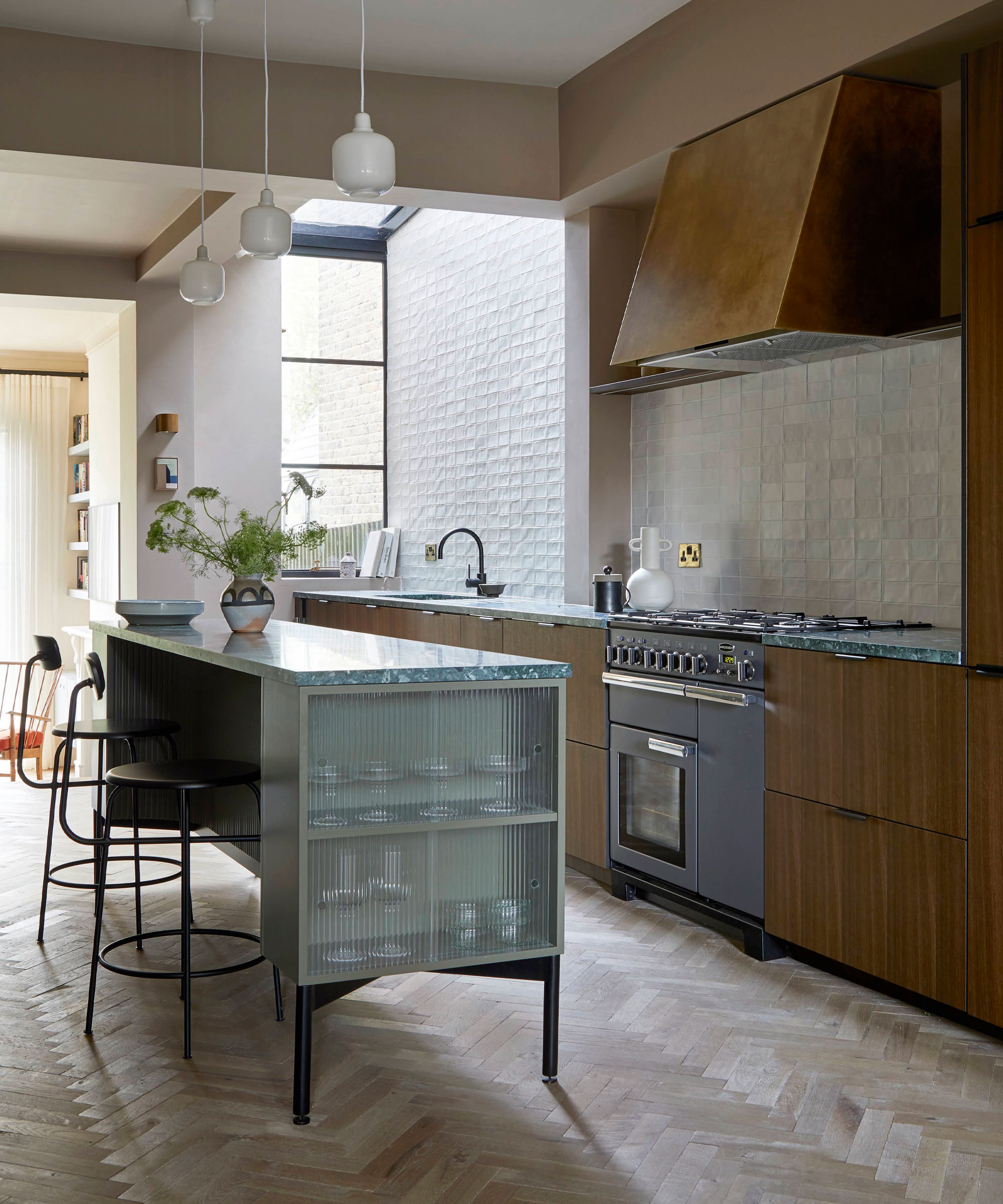
'It's essential to keep your cleaning tools clean. Dirty sponges and dishcloths can harbor bacteria and spread germs. Replace or sanitize them regularly,' suggests Emma Parker.
You should monitor how long you have had a sponge on the go, since it's sometimes not easy to spot when they need to be replaced. I recently had a sponge that looked reasonably new and clean, and it was only until I noticed it had started to sprout some greenery I knew I had to start changing out my sponges more regularly.
Kitchen sponges should be changed out at least once a week, depending on how often they are used, and dishcloths should be washed every three to five days.
FAQs
What decor shouldn't be stored in a kitchen?
Jacky Chou, principal and director at Archute, says, 'While it may be tempting to display your collection of magnets, mugs, figurines, or other souvenirs from your travels or hobbies in your kitchen, they are not doing any favors to your design. They create visual noise, distract from the focal points of your kitchen, and make it harder to clean and maintain.
'Instead of cluttering your kitchen with knickknacks, choose a few meaningful items that reflect your personality and style and display them in a curated way on a shelf or a wall.'
A cluttered kitchen will ultimately be inefficient, visually unappealing, and can ultimately lead to your kitchen items becoming damaged, so resist the temptation to cram all your appliances into your kitchen. Although they can be useful, items like blenders, juicers, or bread makers can clutter countertops and reduce the available workspace.
Instead, store these appliances in a pantry or cabinet, only keeping those on display that you use on a regular basis in order to maintain an organized and functional kitchen.
Sign up to the Homes & Gardens newsletter
Design expertise in your inbox – from inspiring decorating ideas and beautiful celebrity homes to practical gardening advice and shopping round-ups.

Lola Houlton is a news writer for Homes & Gardens. She has been writing content for Future PLC for the past six years, in particular Homes & Gardens, Real Homes and GardeningEtc. She writes on a broad range of subjects, including practical household advice, recipe articles, and product reviews, working closely with experts in their fields to cover everything from heating to home organization through to house plants. Lola is a graduate, who completed her degree in Psychology at the University of Sussex. She has also spent some time working at the BBC.
-
 Elton John's home fragrance collection is 'a tribute to the optimism and beauty that spring brings' – and it's under $45 to scent your home this April
Elton John's home fragrance collection is 'a tribute to the optimism and beauty that spring brings' – and it's under $45 to scent your home this AprilSlatkin + Co. teamed up with Elton John to create a home scent inspired by his historic Woodside Estate – they're beautiful, affordable, and selling quickly
By Sophie Edwards
-
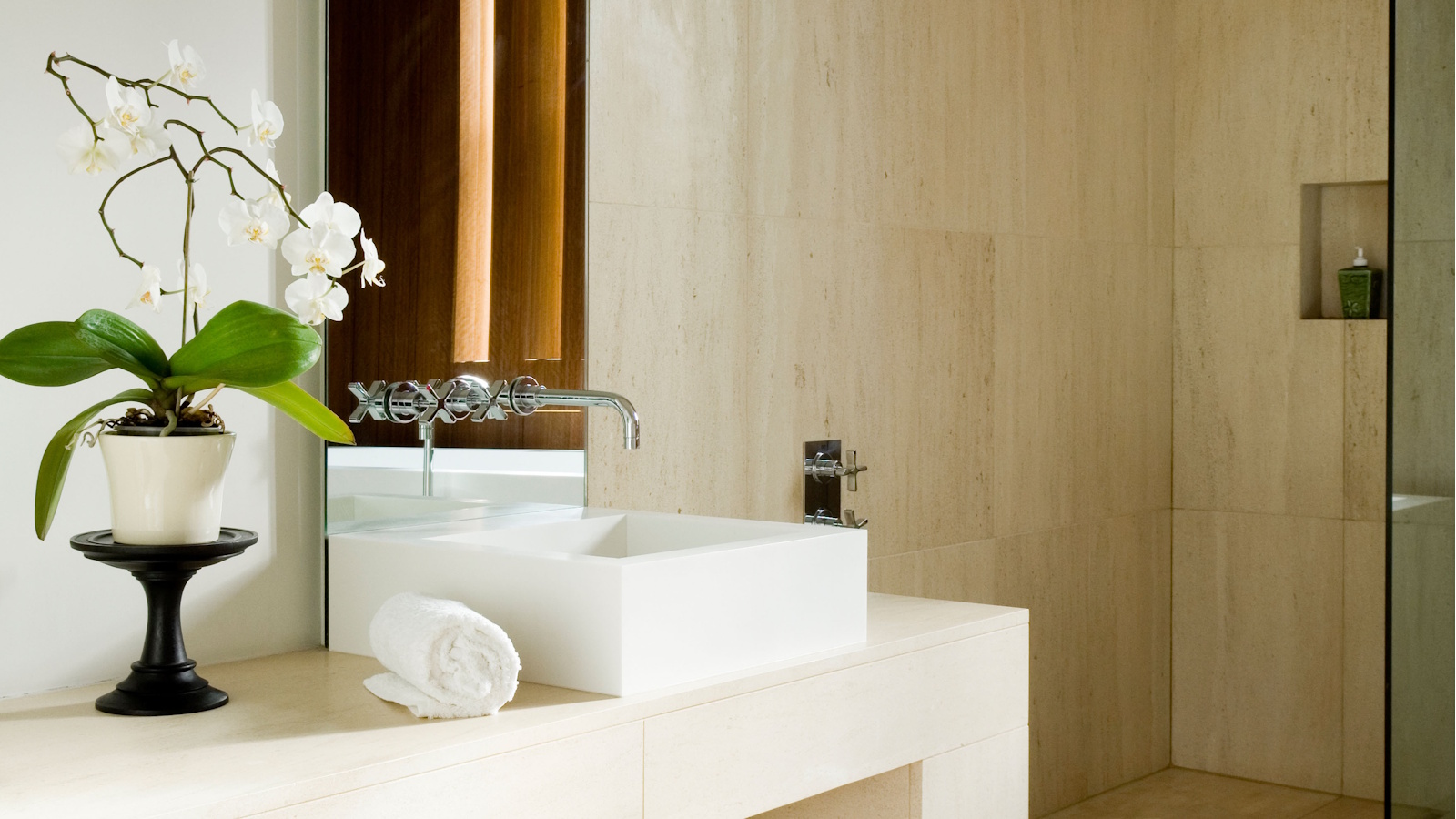 My orchid's leaves haven't wrinkled since moving it to this exact spot in my home – it's the easiest hack to keep these flowering houseplants hydrated
My orchid's leaves haven't wrinkled since moving it to this exact spot in my home – it's the easiest hack to keep these flowering houseplants hydratedDehydrated orchids can perk up again in the environment of a bathroom
By Tenielle Jordison
